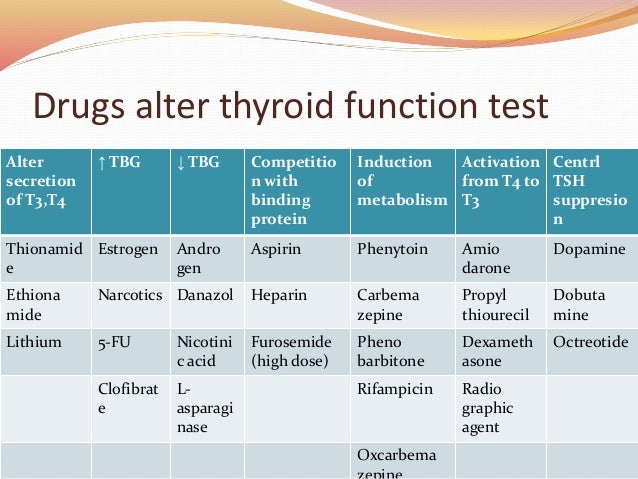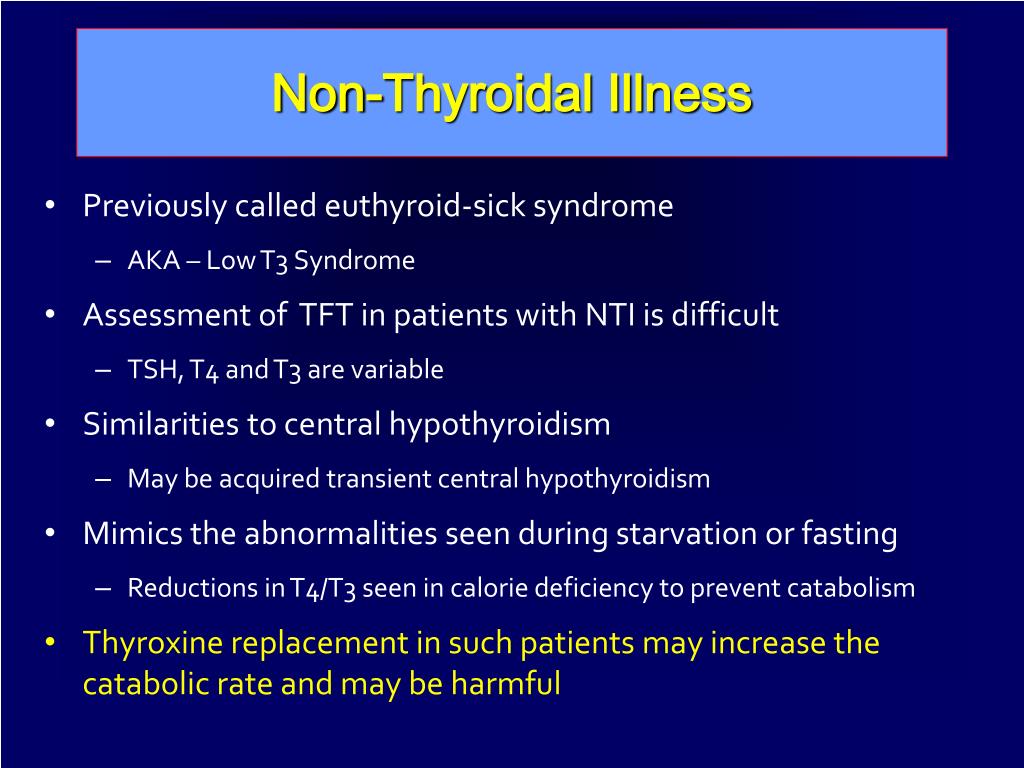

In treating the ESS with thyroid hormone, DeGroot asserts that he would “do no evil,” but confesses uncertainty as to whether benefit or harm might ensue. He seems to eschew the premise and the evidence that it is the underlying illness (causing the ESS) that needs curing, not the aberrated thyroid function tests. We agree with DeGroot when he “cannot envision that replacement of T 3 or T 4 would cure all patients”, but the contention that such treatment would cure any is bewildering. He avers that “there is no clear evidence that administration of replacement T 3 … is disadvantageous,” choosing to ignore critical analyses that caution us otherwise (5–7, 11). DeGroot suggests the possibility of treating such patients with recombinant human TSH to normalize their serum T 4, but wouldn’t L-thyroxine be both considerably more practical and cost-effective?įinally, DeGroot admits that “proof that tissues are chemically hypothyroid is clearly lacking,” yet he concludes that thyroid hormone treatment “may be beneficial” and proceeds to give guidelines for such therapy. But how can thyroid hormone treatment be justified by DeGroot for all patients with altered thyroid function tests of the ESS, which simply reflect acute homeostatic mechanisms when he acknowledges that hypothyroidism may take 2–3 weeks to actually develop? While the review cites studies showing reduced TRH biogenesis, this does not refute a concept of ESS as homeostatic in nature, nor does it imply that the patients are, by definition, hypothyroid. ( 10) carefully make the distinction between effects of acute vs. In patients such as those with prolonged coma, thyroid hormone therapy might be warranted, and in this context Van den Berghe et al. This could be true in some states of prolonged systemic illness that may lead to relative thyroid hormone deficiency as a result of chronically low degrees of TSH-driven thyroid hormone biosynthesis. DeGroot cites the increases in TSH that may be seen with recovery ( 9) as “strongly suggesting” that the patients are recovering from a hypothyroid state. ( 8) indicated that pituitary function was normal in critical illness in the absence of dopamine therapy.

He postulates that ESS patients are hypothyroid on the basis of low TRH with secondarily low TSH, while ignoring the fact that observed changes in iodothyronines occur too rapidly in acute illness to be on a hypothalamic/pituitary basis. DeGroot calls the normal to low TSH levels in these situations “inappropriately low,” rather than considering them appropriate because the patients are euthyroid. Our concept of metabolic status in the ESS is that patients are indeed euthyroid during caloric deprivation, acute illness, surgery, and dozens of other models, and that the changes in thyroid function tests reflect effects by the various cytokines, circulating inhibitors, etc., as have been reviewed (1, 5–7). DeGroot would have us conclude that there is also low FT 4 in ESS, but his own literature review concludes that FT 4 may be low, normal, or elevated.
Euthyroid sick syndrome treatment free#
Recently, Chopra ( 4) observed normal free T 3 in 83% of ESS patients and concluded it might be responsible for maintaining their euthyroid state. By definition, the ESS or “low T 3 syndrome” is characterized by low TT 3.

( 3), he overlooks their finding that only low T 3 significantly and independently predicted survival beyond what was clinically apparent to intensivist physicians. While he cites the study of Maldonado et al. Surely, a causal relationship cannot be inferred from the association of low serum T4 and risk of death, as severity of illness correlates directly with either low T 4 or risk of death. ( 2) by stating that “there is no factual basis for this dogma,” while failing to fully acknowledge that there is no factual basis for treatment either. DeGroot argues with the dogma against such treatment espoused by Chopra et al. DeGroot ( 1) cites a litany of circumstantial evidence ostensibly supporting a state of underlying hypothyroidism in patients with systemic illness, which in his view justifies treatment with thyroid hormone. In his review of the euthyroid sick syndrome (ESS), Dr.


 0 kommentar(er)
0 kommentar(er)
